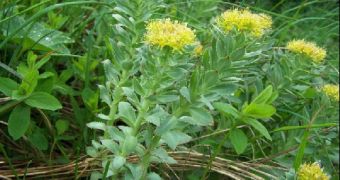It might be a while before scientists manage to locate the fountain of youth and invite people to have a sip, but it looks like they are at least heading in the right direction.
Long story short, scientists at the University of California Irvine say that, after conducting a series of experiments, they reached the conclusion that a plant commonly referred to as the Golden Root can up the life expectancy of fruit flies by as much as 24%.
The plant's official name is Rhodiola rosea, Science News informs us.
What is interesting is that it can help fruit flies live longer independently of the dietary restrictions that the insects are or aren't subjected to.
Study senior author Dr. Mahtab Jafari commented on the findings of this investigation as follows:
“We found that Rhodiola actually increases lifespan on top of that of dietary restriction. It demonstrates that Rhodiola can act even in individuals who are already long-lived and healthy. This is quite unlike resveratrol, which appears to only act in overfed or unhealthy individuals.”
“This is significant, because dietary restriction is considered the most robust method of improving lifespan in laboratory animals. And scientists have been scrambling to identify compounds that can mimic its effects,” Dr. Mahtab Jafari further detailed.
The scientists explain that the plant benefited both male and female fruit flies. Apart from helping them live longer, it contributed to the fruit flies' staying physically fit despite aging.
What's more, old flies were also found to live longer after having been exposed to this plant, suggesting that Golden Root does not only prevent aging but could also be efficient in fighting back some of the health issues associated with it.
By the looks of it, Rhodiola rosea upped the insects' life expectancy by protecting their cells against oxidative stress.
Although the specialists are confident that this plant is “a potential viable candidate to treat aging and age-related diseases in humans,” they say that further researcher on the matter at hand is needed.

 14 DAY TRIAL //
14 DAY TRIAL //